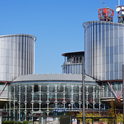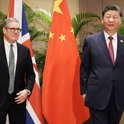This week all eyes have been on propriety in the House of Commons, with the government’s extraordinary backing of Owen Paterson, followed by its even more extraordinary U-turn less than 24 hours later. But down the corridor, a different and rather more familiar cry of impropriety also went up—regarding the Sunday Times’ expose of seeming connections between Conservative donations and the granting of seats in the House of Lords.
In some respects the allegations were startling—that nearly every Conservative treasurer, and most of the party’s biggest financial backers since 2010 (a total of 22 individuals) had been appointed to the peerage. Some anonymous interviewees suggested that an implicit bargain exists, that a £3m donation to the party earns you a seat in the second chamber. Allegations of “cash for peerages” have been frequent over the decades, and this major investigation was eclipsed by the Tory meltdown over matters in the Commons. But dealing with the shortcomings of the Lords is urgent, and the behaviour of the Johnson administration sharply illustrates the fragility of the system.
So what if anything is new here, and what can be done? It’s important first to note that donation to a political party is not a disqualification for appointment to the Lords, and indeed it would be strange if it was. The Lords includes many senior figures who have reached the top of their professions. The majority of its members sit for political parties. It’s unsurprising, therefore, that some have chosen to donate to those parties in the past. Parties are necessary in a democracy, and individuals who support them financially are not inherently corrupt. But donation alone should not be a qualification for membership of the legislature—that needs to be based on something else.
Notwithstanding the establishment of the House of Lords Appointments Commission (HOLAC) in 2000, the restrictions on prime ministerial appointments to the chamber are very limited. Despite significant pressure for change over the years (for example from the relevant select committees in the Commons, under successive chairs Tony Wright and Bernard Jenkin), HOLAC assesses party candidates only for “propriety,” not “suitability.” It looks into appointees’ financial affairs and recommends to the prime minister that individuals are not appointed if these raise propriety concerns.
This has undoubtedly weeded out some major donors in the past. But a person with no particular blot on their character, but close to zero qualification for a seat in the legislature, will by necessity attract no comment from the Commission. Additionally, HOLAC can only recommend, and has no power to block the prime minister’s nominees. Last year Boris Johnson became the first prime minister to reject one of its propriety recommendations, over his nomination of donor Peter Cruddas. The Commission, which is non-statutory, could do no more than publicly flag its objections.
Even more important than allegations of buying access are other concerns about appointments to the Lords. HOLAC also has no say over the chamber’s size, which has grown inexorably to around 800, and it has no control over the way that seats are balanced between the parties. Such decisions rest entirely with the prime minister. A committee established by the lord speaker proposed in 2017 that the chamber should be capped at 600 members, and a fair formula applied for distributing seats. But it too was only advisory, and while Theresa May largely complied, Boris Johnson has flouted its proposals completely—attracting stern criticism from its chair and from former lord speaker (and Conservative cabinet minister) Norman Fowler. Within less than two years, Johnson had appointed over 80 peers, 41 Conservative to just 13 Labour, while May appointed only half this number in her entire three-year tenure. There have subsequently been veiled threats to “pack” the chamber with further Conservatives if it stands in the government’s way over matters such as the Northern Ireland Protocol.
It remains an extraordinary fact of UK political life that the prime minister has such extensive patronage power over one chamber of our parliament. If this arrangement existed in another democracy, we would likely subject it to ridicule. The House of Lords does important work, and yet is remarkably vulnerable to a prime minister disrespectful of norms of good behaviour and the value of constitutional protections. Calls for greater constraints on the prime minister’s powers, and to strengthen the House of Lords Appointments Commission, now date back decades. The Owen Paterson affair, and much else under Johnson’s premiership, demonstrate vividly the urgency of such reforms.













